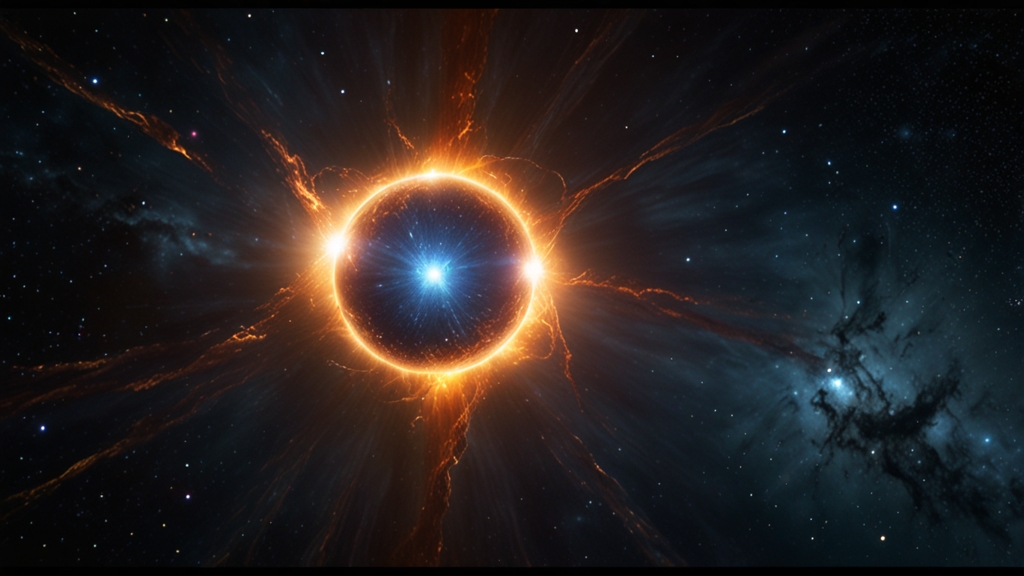Genesis: A Clash of Science and Faith
The relationship between science and faith has always been complex and multifaceted. This interplay particularly surfaces in discussions about the origins of the universe and life itself. The Book of Genesis, a foundational text for many religions, offers a creation narrative that stands in stark contrast to scientific explanations like the Big Bang theory and evolution. This article delves into how these two worldviews collide and occasionally converge in the ongoing quest to understand our beginnings.
The Biblical Account: Genesis
The Book of Genesis starts with the iconic words, "In the beginning, God created the heavens and the earth." This narrative goes on to describe a six-day creation process where God creates light, sky, land, vegetation, celestial bodies, animals, and humans. This account is imbued with theological significance, portraying a world crafted with purpose and intention by a divine creator. For millennia, this narrative served as the definitive explanation of our universe for many cultures and civilizations.
The Biblical account of creation has deeply influenced not just religious thought but also art, literature, and social norms throughout the ages.
The Scientific Perspective
In the modern era, scientific discoveries have provided a different framework for understanding the origins of the universe and life on Earth. The Big Bang theory posits that the universe began approximately 13.8 billion years ago from an incredibly hot and dense singularity. Through a process of cosmic inflation, nucleosynthesis, and galaxy formation, the universe as we know it came into being. On the biological front, Charles Darwin's theory of evolution by natural selection explains the diversity of life through gradual changes over millions of years.
Science relies on empirical evidence and testable hypotheses, offering a model of the universe that continually evolves with new discoveries.
Points of Contention
The differences between these two accounts have led to significant debates and conflicts, often framed as 'science vs. religion.' Several points of contention arise, including:
- Literal vs. Symbolic Interpretation: Religious adherents who interpret Genesis literally often find it incompatible with scientific explanations. Others view the text symbolically, suggesting that it offers moral or existential truths rather than a historical or scientific account.
- Timeline Discrepancies: The Biblical timeline suggests a young Earth, thousands of years old, whereas scientific estimates place the age of the Earth at about 4.5 billion years.
- Human Origin: Genesis describes humans being created in the image of God, contrasting sharply with the evolutionary view of humans as a product of natural selection.
Areas of Convergence
Despite these differences, it's essential to recognize areas where science and faith intersect:
- Awe and Wonder: Both the Biblical narrative and scientific inquiry inspire a sense of awe. Whether through the lens of divine creation or the complexities of cosmic evolution, the origin stories evoke wonder about our place in the universe.
- Moral and Ethical Dimensions: While science can explain the 'how,' faith often addresses the 'why.' This complementary approach can foster a more holistic understanding of existence.
- Philosophical Questions: The questions raised by both Genesis and scientific theories—about the nature of existence, the purpose of life, and the origins of everything—are deeply philosophical, often transcending empirical evidence and veering into metaphysical territory.
Bridging the Divide
Efforts to reconcile these viewpoints have led to various interpretative frameworks:
- Theistic Evolution: This perspective suggests that God used the process of evolution to bring about life on Earth, integrating religious belief with scientific understanding.
- Day-Age Theory: Some interpret the 'days' in Genesis as metaphorical, representing long periods during which creation unfolded, rather than literal 24-hour days.
- Non-overlapping Magisteria (NOMA): Proposed by evolutionary biologist Stephen Jay Gould, NOMA posits that science and religion are separate realms of inquiry—science covers the empirical universe while religion deals with questions of moral meaning and value.
"The conflict between science and religion is not about facts, but about values." – Stephen Jay Gould
Conclusion
The clash between Genesis and scientific theories about the origin of the universe and life is emblematic of broader tensions between science and faith. However, it also presents opportunities for dialogue and deeper understanding. By appreciating the nuances and strengths of both perspectives, we can foster a more integrated, comprehensive approach to answering life's most profound questions.
Ultimately, whether viewed through the lens of science or faith, the story of our origins remains a captivating and deeply meaningful saga, beckoning us to explore, question, and marvel at the mysteries of existence.














